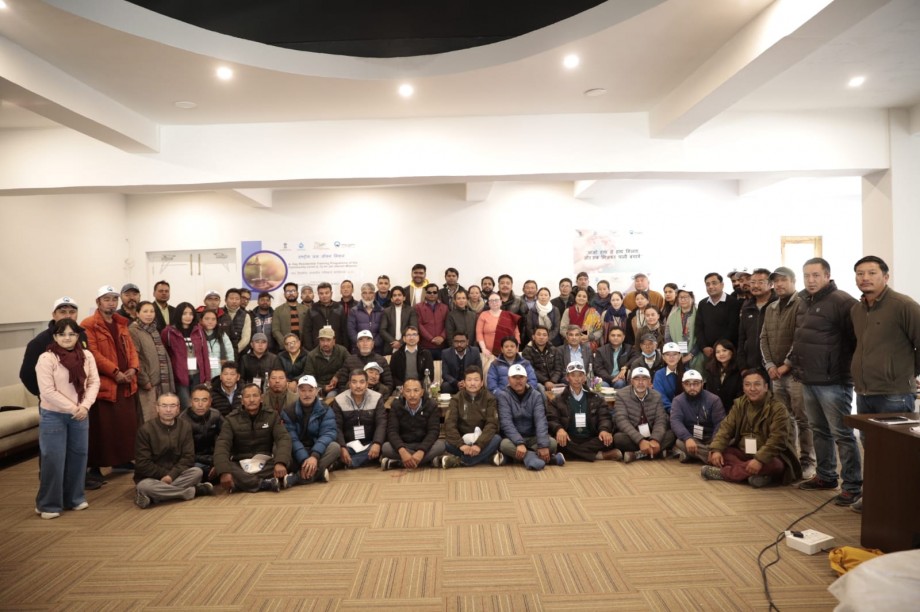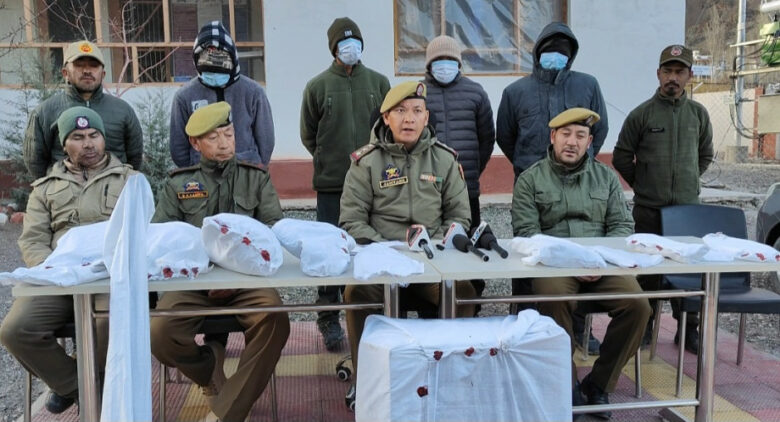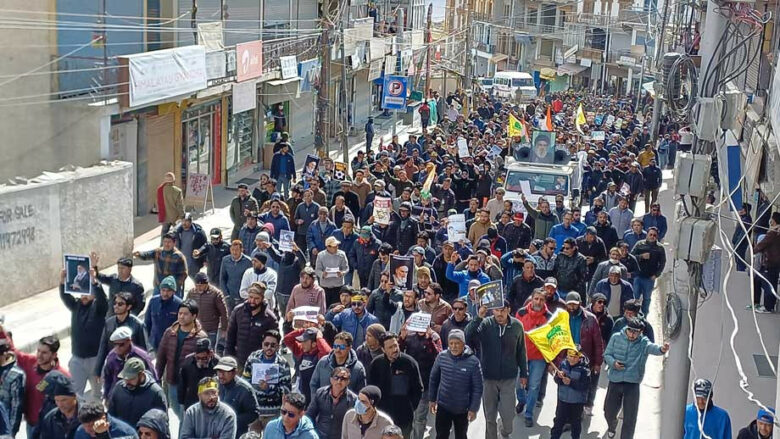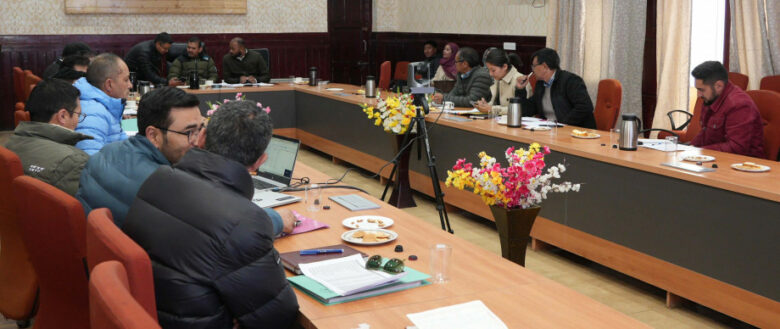
Deputy Commissioner, Leh, Shrikant Suse attended Day 2 of the ongoing 4-day Residential Training programme of Community Level (L-3) on Jal Jeevan Mission, organised by the Quality Council of India in Leh.
The community level (L-3) stakeholders include the Panchayati Raj Institutions members such as Sarpanches, Panches, and Panchayat Secretaries who are also the members of Village Water and Sanitation Committee (VWSC) or Panni Samitis formed exclusively under Jal Jeevan Mission.
Addressing the gathering, DC Leh, Shrikant Suse highlighted the major role played by the stakeholders, including the PRIs, Sarpanches, and Panchayat Secretaries, who are part of the VWSC, in successfully implementing the Jal Jeevan Mission at ground level. Sharing that around 70% of households in the Leh district are provided FHTCs, DC Leh lauded the dedication and hard work of the PRIs, VWSC along with the PHE department for the achievement.
He stressed that the said training would be beneficial in developing the mechanisms in concurrence with the JJM guidelines to effectively run the scheme post the provision of FHTCs in each village. He added that the JJM scheme lays major emphasis on community ownership and awareness and is also the reason for the success of the scheme.
Earlier, Director, Quality Control of India, Alok Jain spoke about the role of QCI, as a key resource centre, in the successful implementation of the Jal Jeevan Mission. He expressed gratitude for the support extended by the District Administration and Project Management Unit in fructifying the training and lauded the sincerity and dedication of the participants.
Chief Planning Officer, Leh Tsewang Gyaltson and Superintending Engineer, PHED, Leh, Sonam Angchuk also addressed the gathering. They highlighted the pivotal role of the PRIs/Gram Sabhas in executing the JJM scheme and added that the participants would successfully implement the learnings of the training in the field. They added that the integrated approach of JJM and the support from all stakeholders would ensure overcoming all the challenges.
The four-day residential training of L-3 community-level focuses on various topics, such as Opportunities, roles and responsibilities of all stakeholders in planning and implementation, Enabling Environment-Development of responsive and responsible leadership. Water quality monitoring and surveillance, Community participation, Village Action Plan and a field exposure visit are also part of the training programme.


